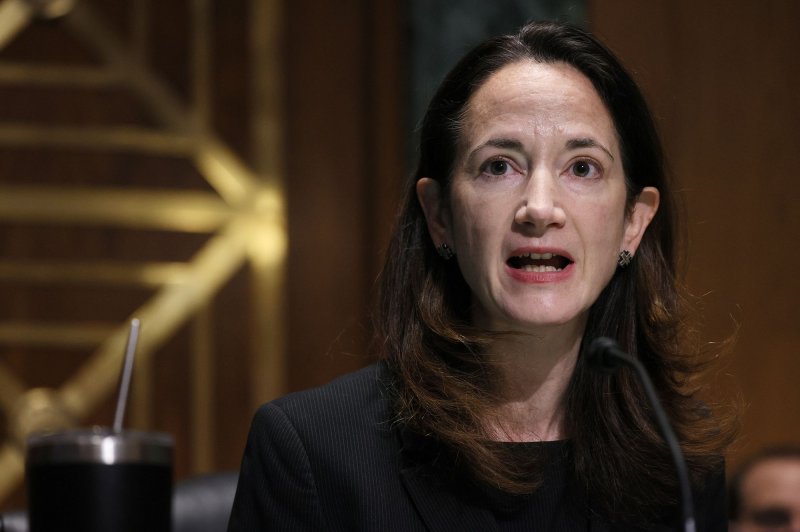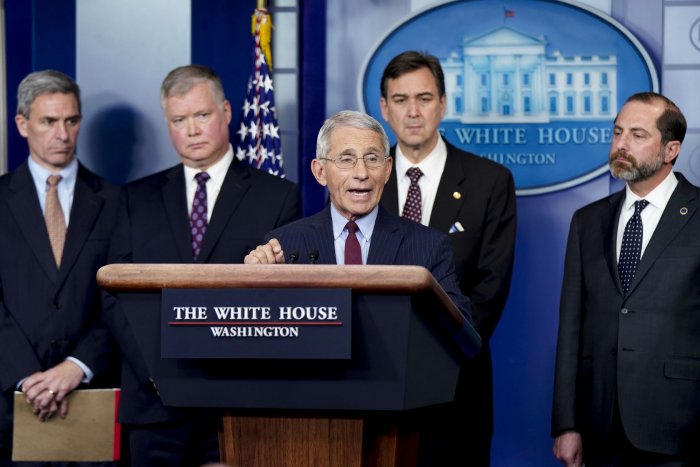1 of 5 | Director of National Intelligence Avril Haines, in an annual report, said China, Iran, North Korea and Russia pose the biggest threats to the United States. File Photo by Joe Raedle/UPI |
License Photo
April 13 (UPI) -- The United States faces a "diverse array of threats," particularly from China, Iran, North Korea and Russia, amid disruption caused by the COVID-19 pandemic, an annual U.S. intelligence assessment released Tuesday indicated.
The Office of the Director of National Intelligence said such threats against the backdrop of climate change and rapidly changing technology create new challenges for the U.S. intelligence community. The report said China, as a "near-peer competitor," will challenge the United States in a number of ways, including economically, militarily and technologically. Russia, meanwhile, could go so far as to use force.
Iran will continue to fuel malign activities -- including terror attacks against U.S. targets -- and North Korea will cause disruption on the regional and world stages, the DNI report said. Despite weakened leadership, al-Qaida and the Islamic State could rebuild and prove to be threats.
"Major adversaries and competitors are enhancing and exercising their military, cyber, and other capabilities, raising the risks to U.S. and allied forces, weakening our conventional deterrence, and worsening the longstanding threat from weapons of mass destruction," said the DNI, headed up by Avril Haines.
The report pointed to the pandemic as a challenge even as countries push to vaccinate against the novel coronavirus. It said the "political aftershocks" from the pandemic will be felt for years.
"The effects of the COVID-19 pandemic will continue to strain governments and societies, fueling humanitarian and economic crises, political unrest, and geopolitical competition as countries, such as China and Russia, seek advantage through such avenues as 'vaccine diplomacy,'" the report said.
"Countries with high debts or that depend on oil exports, tourism, or remittances face particularly challenging recoveries, while others will turn inward or be distracted by other challenges."
The DNI report also pointed to natural threats, including those caused by climate change -- disease outbreaks, food and water scarcity, humanitarian crises, extreme weather and permafrost melting.
January 31, 2020
National Institutes of Health official Dr. Anthony Fauci (C) speaks about the coronavirus during a press briefing at the White House in Washington, D.C. Health and Human Services Secretary Alexander Azar (L) announced that the United States is declaring the virus a public health emergency and issued a federal quarantine order of 14 days for 195 Americans. Photo by Leigh Vogel/UPI |
License Photo
















